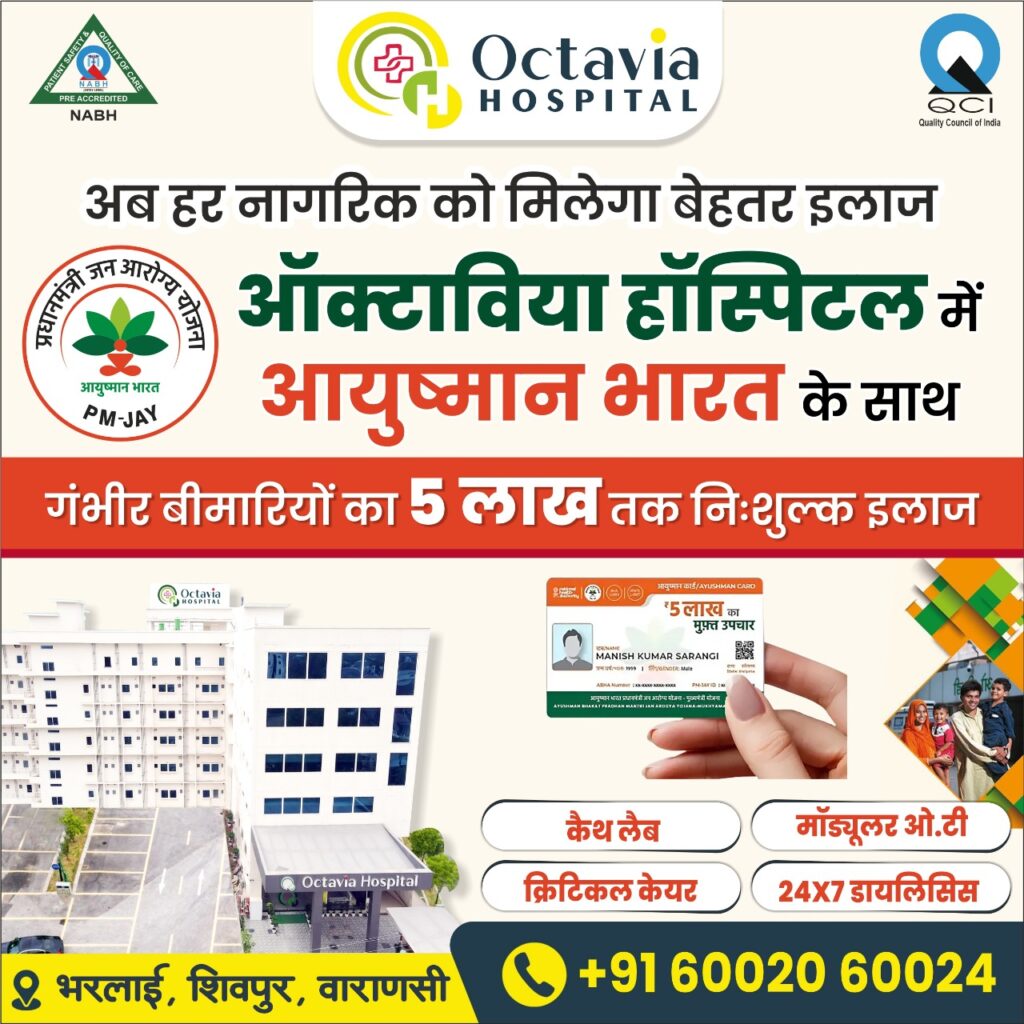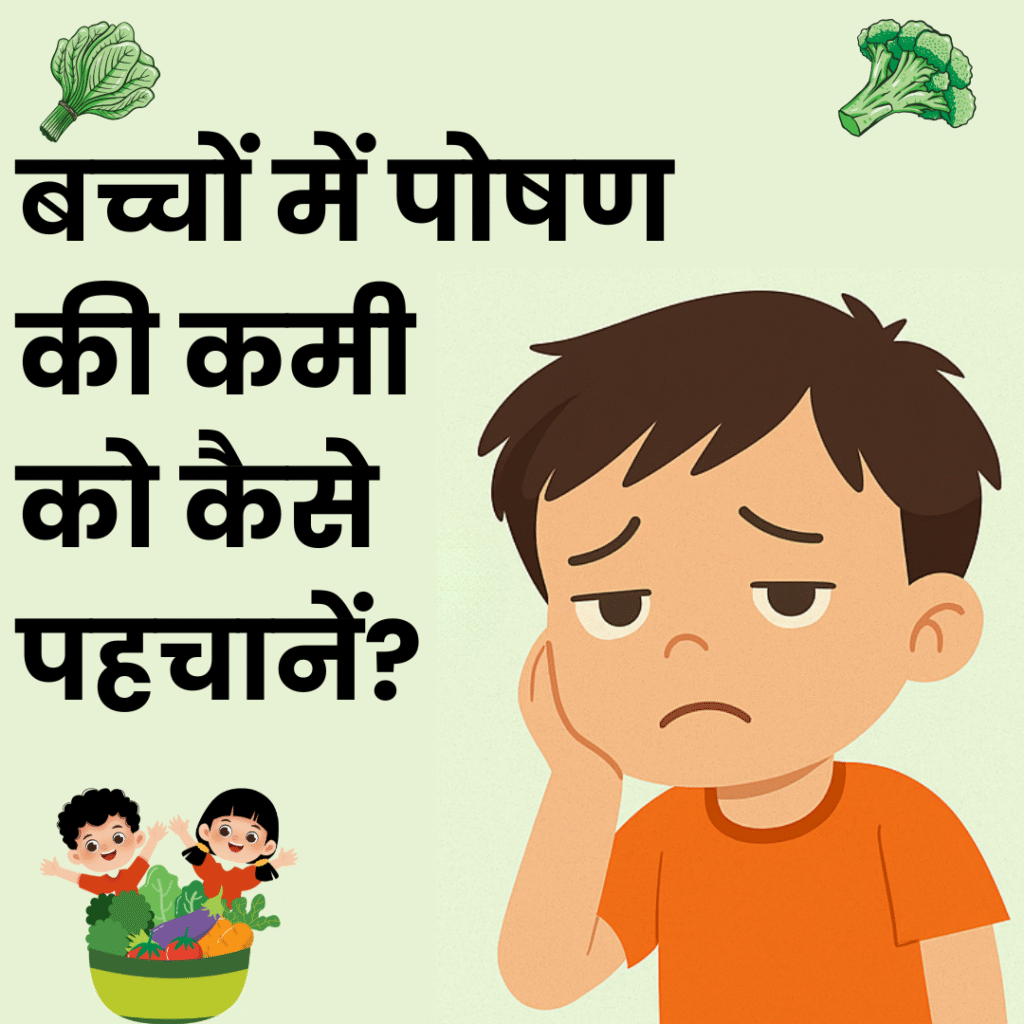Vaccination is one of the most powerful tools in modern medicine, ensuring that children grow up healthy and protected from serious diseases. At Octavia Hospital, we prioritize the health and well-being of your little ones, …

Understanding Common Childhood Vaccines: Insights from Octavia Hospital and Dr. Vibhesh Raj Tiwari, Pediatrician
Vaccination is one of the most powerful tools in modern medicine, ensuring that children grow up healthy and protected from serious diseases. At Octavia Hospital, we prioritize the health and well-being of your little ones, which is why we are committed to providing comprehensive guidance on childhood immunizations. Dr. Vibhesh Raj Tiwari, our trusted pediatrician, offers expert insights into common childhood vaccines and their role in safeguarding your child’s future.
In this blog, we will explore the importance of vaccines, the most common ones your child will receive, and some essential tips for ensuring your child stays on track with their immunization schedule.
Why Are Childhood Vaccines So Important?
Vaccination is one of the most successful public health achievements of the 20th and 21st centuries. It prevents millions of cases of serious diseases and saves countless lives. Dr. Vibhesh Raj Tiwari points out that the benefits of vaccination extend beyond the individual—by vaccinating, you’re contributing to the broader goal of herd immunity, where large portions of the population are protected, preventing the spread of infectious diseases.
Dr. Tiwari says, “When we vaccinate, we reduce the chances of outbreaks, protect vulnerable populations who can’t get vaccinated, and ultimately make our communities healthier. Immunization doesn’t just protect your child—it protects everyone around them.”
Most Common Childhood Vaccines
As your child grows, they will receive a series of vaccinations. Below are the most common vaccines they will receive, along with Dr. Tiwari’s expert advice on each:
1. Diphtheria, Tetanus, and Pertussis (DTaP) Vaccine
- What it protects against: Diphtheria, tetanus (lockjaw), and pertussis (whooping cough).
- When is it given: At 2, 4, 6, 12-15 months, and again at 4-6 years.
Why it’s important: Diphtheria and pertussis can cause severe respiratory distress, while tetanus can lead to painful muscle spasms. Pertussis, in particular, can be deadly for infants.
2. Polio Vaccine (IPV)
- What it protects against: Poliomyelitis (polio).
- When is it given: At 2, 4, and 6-18 months, with a booster at 4-6 years.
Why it’s important: Polio can cause paralysis and even death. While polio has been eradicated in most countries, vaccination is crucial to preventing any potential outbreaks.
3. Measles, Mumps, and Rubella (MMR) Vaccine
- What it protects against: Measles, mumps, and rubella.
- When is it given: At 12-15 months and again at 4-6 years.
Why it’s important: These diseases can lead to serious complications, such as brain inflammation (measles), infertility (mumps), and birth defects (rubella). Mumps and measles are also highly contagious.
4. Haemophilus Influenzae Type B (Hib) Vaccine
- What it protects against: Meningitis, pneumonia, and other bacterial infections caused by Haemophilus influenzae type b.
- When is it given: At 2, 4, 6 months, with a booster at 12-15 months.
Why it’s important: Hib can cause severe infections like meningitis, which can lead to brain damage, hearing loss, and even death.
5. Hepatitis B Vaccine
- What it protects against: Hepatitis B, a viral infection that affects the liver.
- When is it given: At birth, 1-2 months, and 6-18 months.
Why it’s important: Hepatitis B is transmitted through bodily fluids and can lead to chronic liver disease and even liver cancer. Early vaccination prevents these severe complications.
6. Rotavirus Vaccine
- What it protects against: Severe diarrhea caused by rotavirus.
- When is it given: At 2, 4, and 6 months.
Why it’s important: Rotavirus is a leading cause of severe diarrhea, vomiting, and dehydration in young children, which can lead to hospitalization. The vaccine significantly reduces the risk of these severe outcomes.
7. Influenza (Flu) Vaccine
- What it protects against: Seasonal influenza (flu).
- When is it given: Annually, starting at 6 months.
Why it’s important: Influenza can cause serious complications, including pneumonia, and can be particularly dangerous for young children, the elderly, and those with chronic illnesses. Annual vaccination helps protect against the most common strains.
8. Pneumococcal Vaccine (PCV13)
- What it protects against: Pneumococcal diseases like pneumonia and meningitis.
- When is it given: At 2, 4, 6, and 12-15 months.
Why it’s important: Pneumococcal infections can cause severe complications, including ear infections, meningitis, and pneumonia. Vaccination reduces the risk of these dangerous conditions.
9. Meningococcal Vaccine
- What it protects against: Meningitis and bloodstream infections caused by Neisseria meningitidis.
- When is it given: At 11-12 years, with a booster at 16 years.
Why it’s important: Meningococcal infections are fast-spreading and can cause severe health complications, including brain damage or death. The vaccine is especially important for adolescents in group settings, like colleges.
10. Human Papillomavirus (HPV) Vaccine
- What it protects against: HPV, which is linked to cervical and other cancers.
- When is it given: At 11-12 years, with two doses spaced 6-12 months apart.
Why it’s important: HPV is the leading cause of cervical cancer, as well as other cancers like throat and anal cancer. Vaccination significantly reduces the risk of developing these cancers later in life.
Common Concerns About Vaccines
Despite their proven effectiveness, many parents still have questions or concerns about vaccines. Here are some of the most common concerns, along with answers from Dr. Vibhesh Raj Tiwari:
1. Are vaccines safe?
Dr. Tiwari: “Vaccines are thoroughly tested for safety and efficacy before they are approved for use. Side effects are rare, and the benefits of vaccination far outweigh any potential risks. In most cases, any side effects are mild, such as a slight fever or soreness at the injection site.”
2. Can vaccines overload my child’s immune system?
Dr. Tiwari: “Our children’s immune systems are constantly exposed to various germs and viruses. The number of antigens in vaccines is actually much smaller than what their immune system encounters in daily life. Vaccines are specifically designed to protect against serious diseases while sparing your child from unnecessary risks.”
3. What if my child is sick or has a mild cold—should I delay the vaccine?
Dr. Tiwari: “If your child has a mild illness, such as a cold, they can generally still receive their vaccines. However, if your child has a more severe illness, it’s best to consult with your pediatrician to decide whether a delay is necessary.”
Tips for Parents
- Stick to the Immunization Schedule: Keep track of your child’s vaccinations and ensure they receive each dose on time to maximize the effectiveness of the vaccine.
- Talk to Your Pediatrician: If you have concerns or questions about vaccines, don’t hesitate to speak with your pediatrician. Dr. Tiwari and the team at Octavia Hospital are always available to address any concerns.
- Stay Informed: Be proactive in understanding the latest developments in vaccines and health recommendations to keep your child safe.
- Comfort Your Child: Some children may feel anxious about shots. Try to comfort them with soothing words, bring their favorite toy, or even plan a treat afterward to ease the experience.
Dr. Tiwari explains, “It’s natural for parents to have concerns, but the science behind vaccines is clear. We encourage parents to discuss any questions they have with us. The goal is to ensure your child’s health and to protect those who cannot be vaccinated.”
How Octavia Hospital Supports Parents
At Octavia Hospital, we understand that parenting comes with many tough decisions, especially when it comes to your child’s health. To help ease the process of vaccinations, we offer:
- Vaccination Clinics: We provide dedicated vaccination days and times to help you stay on track with your child’s immunization schedule.
- Expert Consultation: Dr. Vibhesh Raj Tiwari and our pediatric team are available for one-on-one consultations to answer your questions about vaccines and address any concerns.
- Educational Resources: We provide detailed brochures, online resources, and workshops to help parents understand the importance of immunization and stay informed about the latest vaccine guidelines.
Vaccinate for a Healthier Future
The decision to vaccinate is a choice to protect your child, your family, and your community. Dr. Vibhesh Raj Tiwari and Octavia Hospital are here to guide you through the vaccination process, offering expert insights, support, and resources.
Vaccination is one of the most effective ways to ensure your child’s health and safety. Don’t delay—vaccinate today for a healthier tomorrow!






